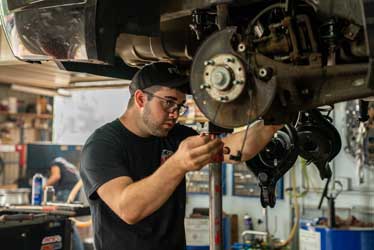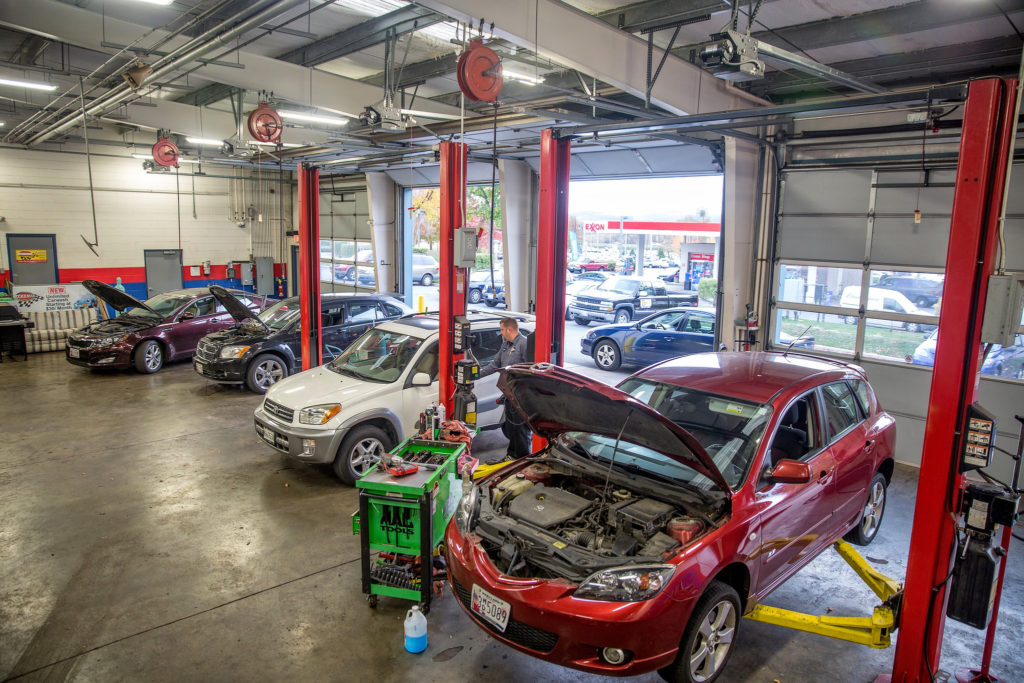All Categories
Featured

Your automobile's engine is the heart of your vehicle, and maintaining it in top problem is necessary for optimum performance and longevity. Routine engine tune-ups are an excellent method to preserve your auto's health, improve fuel effectiveness, and avoid pricey repair work later on. Whether you're a cars and truck enthusiast or somebody that simply wants to keep their car running smoothly, these engine tune-up tips will aid you obtain one of the most out of your auto.
- Change Spark Plugs. Trigger plugs play an important role in beginning your engine and guaranteeing smooth burning. Over time, stimulate plugs can come to be filthy or broken, resulting in misfires, reduced gas efficiency, and harsh idling.
During an engine tune-up, check and replace your ignition system if necessary. The majority of lorries require new ignition system every 30,000 to 100,000 miles, relying on the type. Frequently changing ignition system guarantees correct ignition and ideal engine efficiency.
- Examine and Tidy the Air Filter. The air filter prevents dust, dirt, and debris from entering your engine. A stopped up or dirty air filter restricts air flow, creating your engine to work tougher and melt even more gas.
Examine your air filter throughout a tune-up and change it if it's unclean. In dusty atmospheres or areas with hefty air pollution, you might require to change the air filter much more regularly. A clean air filter can improve gas efficiency and expand the life of your engine.
- Evaluate and Change Belts and Hoses. Belts and tubes are essential for various engine features, such as powering the alternator, water pump, and air conditioning system. Gradually, these components can break, fray, or use out, potentially bring about malfunctions.
During a tune-up, check belts and pipes for signs of wear and replace them if needed. Replacing these parts proactively can save you from pricey fixings and protect against unexpected failures.
- Tidy the Gas System. Your fuel system, consisting of the gas injectors and gas lines, can gather dust and carbon deposits gradually, minimizing engine performance. Cleansing the gas system throughout a tune-up assists improve performance and gas economy.
You can make use of a gas system cleaner or have a professional mechanic carry out a much more comprehensive cleansing. This step is particularly essential for older lorries or automobiles that regularly drive in stop-and-go web traffic.
- Check the Battery and Charging System. A healthy and balanced battery is important for starting your engine and powering electric components. During a tune-up, evaluate the battery terminals for rust and guarantee the connections are limited.
Check the battery's voltage and replace it if it shows indicators of weak point. Additionally, have the generator and charging system examined to guarantee your battery remains charged throughout operation.
- Modification the Engine Oil and Oil Filter. Oil changes are an essential part of engine maintenance. Engine oil lubricates relocating components, reduces rubbing, and aids regulate engine temperature. Over time, oil comes to be infected and loses its performance.
During a tune-up, change the engine oil and oil filter to keep your engine running efficiently. Follow your vehicle's manufacturer recommendations for oil type and change periods.
- Examine the Air Conditioning System. The cooling system stops your engine from overheating. In time, coolant can weaken or become polluted, decreasing its performance.
Examine the coolant degree and condition throughout a tune-up, and flush and change it if required. Evaluate the radiator, water pump, and pipes for leaks or damages. A properly maintained cooling system assists your engine operate at the ideal temperature level and prevents overheating.
- Examine the Ignition System. A damaged ignition system can cause beginning problems and decreased engine efficiency. During a tune-up, evaluate the ignition coils, supplier cap, and rotor (if appropriate) Replace any components that show indicators of wear or damage to guarantee smooth and reliable engine procedure.
- Pay Attention for Unusual Sounds. Throughout a tune-up, take the chance to pay attention for any kind of unusual engine noises, such as knocking, ticking, or hissing. These noises can show underlying concerns, such as shutoff issues, loosened elements, or exhaust leakages. Attending to these issues early can stop more comprehensive damage.
- Use Quality Parts and Fluids. When doing an engine tune-up, constantly utilize top notch components and liquids that satisfy your automobile supplier's specs. Affordable or inaccurate components can compromise your engine's efficiency and dependability.
Conclusion: A Well-Tuned Engine is Trick to Durability. Regular engine tune-ups are crucial for preserving your cars and truck's performance, efficiency, and reliability. By changing used parts, cleaning up vital systems, and addressing prospective issues, you can keep your engine running efficiently for many years ahead. Whether you're doing it yourself or depending on a relied on technician, buying tune-ups is a wise way to secure your car and enjoy a safer, smoother trip.
Latest Posts
Uncover the Premier Auto Repair Offers in Montclare, Chicago
Improve Your Residential Property with Expenses Door Solution
Discover Reduce Expenses on Car Maintenance with Montclare Auto Repair’s Special Deals
More
Latest Posts
Uncover the Premier Auto Repair Offers in Montclare, Chicago
Improve Your Residential Property with Expenses Door Solution
Discover Reduce Expenses on Car Maintenance with Montclare Auto Repair’s Special Deals
